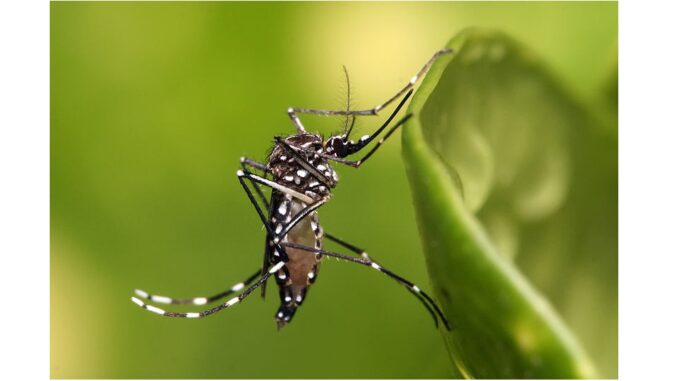
Seventeen-year-old Aseel Rawashdeh, a high school senior from Austin, Texas, became interested in mosquitos as a member of her school’s debate team, when she learned that disease spread by the insects kill in excess of one million people worldwide every year. One of the worst offenders is Aedes aegypti, a species that spreads chikungunya, dengue fever, Mayaro, yellow fever, Zika, and others. Aseel decided to see what could be done about it.
Reading extensively, she learned that essential oils were a known larvicide. She also found a study done at Louisiana State University that used baker’s yeast to bait termites. Fortuitously, larvae of Aedes aegypti like to feed on yeast. Inspired by her new knowledge, she combined yeast with different essential oils (eucalyptus, garlic, orange, peppermint) to see if oil and yeast would even mix. (It did.) Now she just needed to test her hypothesis on live larvae.
Aedes aegypti was not her only test subject, however. Because there are beneficial organisms that dwell in the same waters where disease-carrying mosquitos breed, it was important to test the oil/yeast mixtures on those other creatures. Two of those additional species that Aseel included in her experiment were water fleas (tiny crustaceans), and Toxorhynchites rutilus (common name: mosquito assassin). T. rutilus is a good mosquito because it doesn’t bite humans or animals, it feeds on flower nectar, and best of all, it devours the larvae of bad mosquitos. Definitely an insect that we don’t want to harm.
In order to acquire mosquito larvae, Aseel sent numerous emails to universities until she found sources willing to help with her experiment by providing larval specimens.
Aseel found that her homemade mosquito larvae killer was more effective in killing Aedes aegypti than the commonly used insecticide ‘bacterium Bti’. Also, it caused no harm to mosquito assassins and water fleas. Better still, it’s relatively inexpensive.
The results of her efforts earned the attention of experts and academics, who are interested in testing these findings in the field. Additionally, Aseel took sixth place (in a tough competition) in the nationwide Regeneron Science Talent Search.
